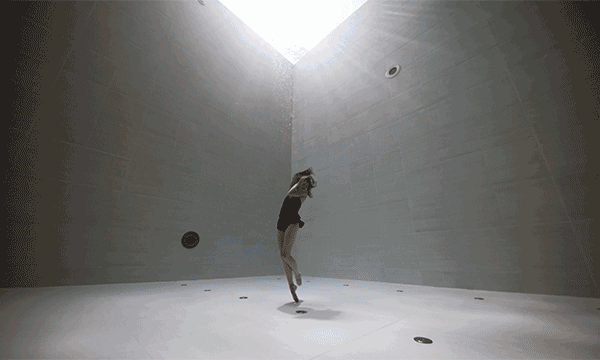We participated with Côme Editions at the The Conscious Festival produced by Green Is The New Black.
A place where fun and social environmental responsibility go hand in hand.
Our founder Rosalie Mann shared a conference there with the multifaceted free diver artist, underwater author and activist Julie Gautier to talk about ocean and plastic.

"I am often asked how we can take concrete action on plastic pollution. The first thing is to get informed. When you have the knowledge, you have the power to make a difference, for real. You have the power to ask you the right questions.
You should know that plastic pollution has invaded our planet with plastic waste but especially with microplastics.
Scientists have seen microplastics everywhere they have looked: in deep ocean, in Arctic snow and even in space.
Everywhere.
And the main victim of this plastic pollution is ocean.
The ocean concentrates 80 % of the world’s plastic waste.
So yes, it is important to collect plastic waste; but the solution is not recycling this plastic. Let’s stop with this greenwashing. We won’t stop the pollution like that.
We must understand that there is too much plastic in ocean today, and in too small particles, too dispersed in water, to the bottom of the ocean.
If we really want to take concrete action, the solution is above all to limit future plastic pollution. And for that you simply have to stop using plastic.
If we really want to act and save the ocean, we need to reduce our plastic consumption.
And this is not only plastic bottles, plastic bags, plastic straws. No, plastic is everywhere around us in our daily life.
There are so many products containing plastics.
We live in an age where we touch more plastic
than the people we love.
We call them hidden plastics: chewing gums, lipsticks, swipes, shower gel, sparkling, suncream, cigarette butts, tea bags, balloons, synthetic clothes, sneakers, etc…. For example, when we walk around or run with synthetic sneakers or sneakers made with recycled plastic, the plastic sole of our shoes wears down and produce microplastics which go directly into the air, the water and the soil. This is the reason why it is so important to think twice before buy new sneakers and choose good ones.
We have to rethink our way of production and consumption.
And you know what, this is possible. There are already many alternatives and innovations.
Innovation is the key, but let’s never forget that plastic create microplastics during all its cycle of life. So, we need to stop with this toxic material.
Plastic recycling is presented to us as a quick fix, but it is not true. Plastic recycling contributes to plastic pollution by creating microplastics that end up in the air, soil and water.
This mirage overshadows the only real solution: reduce plastic production and consumption.
Why the microplastics or nanoplastics are our real enemy?
Because plastics don't biodegrade, so the tiny "microplastic" shreds will stay in the water, soil, and air for centuries.
Microplastic affect our health and the health of our children.
Plastic is toxic, and each of us are ingesting 5 grams of plastic every week - the weight of a credit card.
Imagine a lifetime.
It is really important to educate yourselves, knowledge is the power to create a better future.
Today plastic pollution is air pollution.
We are probably inhaling microplastics right now.
We know that inhaled plastics can produce inflammation and lesions in lungs.
Repeated exposure is suspected of leading to respiratory problems like asthma and cancer. Inhaling microplastics may also increase exposure to other toxic substances and coatings associated with plastics and their manufacture.
Microplastic particles have been revealed in the placentas of unborn babies. The particles have been consumed or breathed in by the mothers.
The purpose of all this information is not to make you fear but to make you aware.
We can all think, live and act as an eco-conscious human and in this way, we will concretely change the world for better.
It’s time for change.
The more people take action, the more change we’ll see.
And as Julie said, art is very good way to spread the word, to open the eye to the beauty of our world.
We can’t continue to ignore the root of the problem.
Our choices can have a positive impact on the future of humanity. You think that it is an utopia?
It's true, but if we think we can't change the world, nothing will happen. If we think the problem is too big, nothing will happen.
We must be utopian. Today's utopia is the reality of tomorrow."

"Art is very good way to transmit emotions. Use it to protect the values you believe in, to spread words of kindness, to open the eyes to the beauty of our world. And try to think about what you can do daily to protect it."
Julie Gautier







